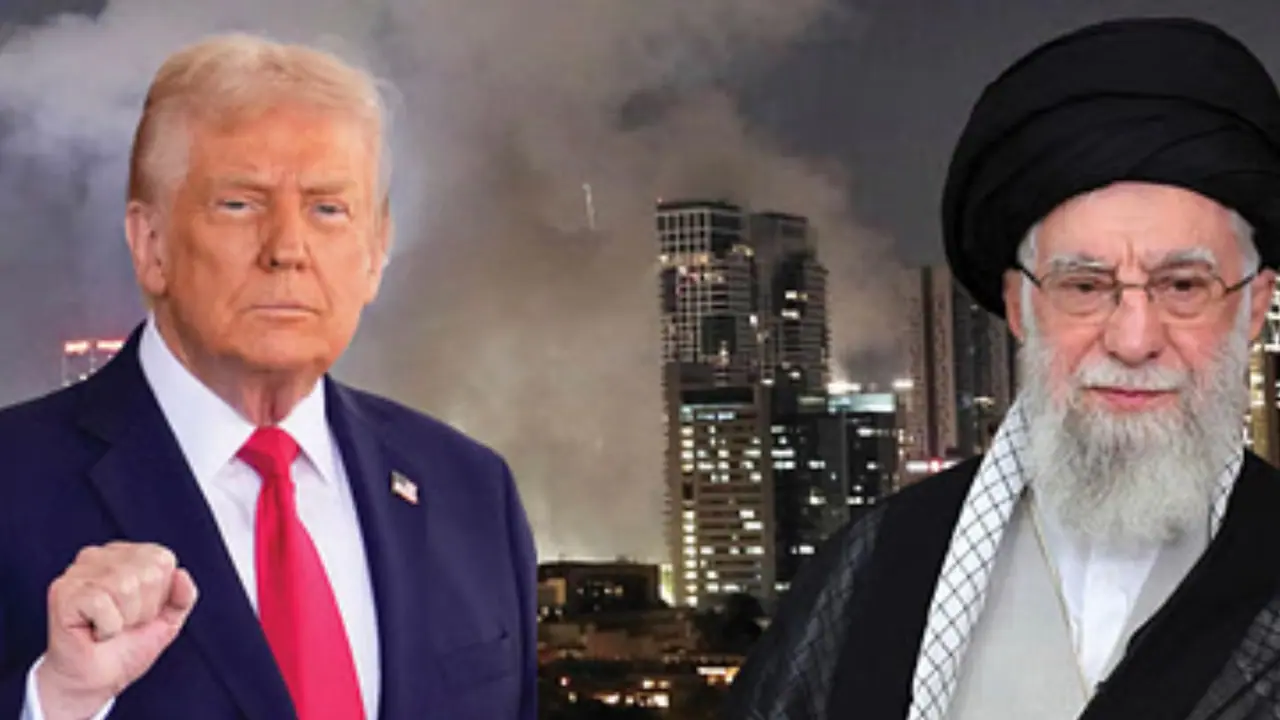The US says it destroyed three of Iran’s key nuclear sites in 25 minutes using stealth bombers and cruise missiles. Officials say President Trump sought peace but acted after Iran blocked talks repeatedly.
The US military has revealed new details of a major airstrike on Iran’s nuclear sites, calling it a fast, powerful Operation Midnight Hammer that 'devastated' Iran's nuclear programme in just 25 minutes.

Defence Secretary Pete Hegseth, speaking at a Pentagon briefing, said that American airstrikes launched last night have "devastated" Iran’s nuclear programme. Speaking at the Pentagon, he said the mission was not meant to target Iran’s troops or civilians.
The mission: Fast, secret, successful
At a Pentagon briefing, Defence Secretary Pete Hegseth said the strikes, ordered by President Donald Trump, were a major success. “We devastated the Iranian nuclear program,” Hegseth said. “But we didn’t target the Iranian people or their soldiers.” Calling it 'bold and brilliant', Hegseth said: "Many presidents dreamed of ending Iran’s nuclear threat. President Trump did it."
He added that Iran should now choose peace, saying, “When President Trump speaks, the world should listen.”
What was Operation Midnight Hammer?
The overnight attack was called Operation Midnight Hammer. It was planned in secret, with only a few US officials knowing the exact timing. General Dan Caine, Chairman of the Joint Chiefs of Staff, said:
- Seven B-2 Spirit stealth bombers took part
- More than two dozen Tomahawk cruise missiles were fired from a submarine
- Targets were hit between 6:40 pm and 7:05 pm Eastern Time
- He called it the 'largest B-2 operational strike in US history'
How the attack was carried out
The strikes hit three major nuclear sites, including the highly protected Fordow facility. B-2 stealth bombers carried out precision strikes while missiles were launched from a US submarine in the region.
General Dan Caine, Chairman of the Joint Chiefs of Staff, confirmed this was a joint military effort that used stealth and surprise. “The B-2 bombers were in and out without anyone knowing. That’s what we do better than anyone,” he said. The three nuclear sites hit were:
Fordow: Iran’s most heavily protected facility, buried under a mountain
Natanz: Iran’s main uranium enrichment site
Isfahan: A major research and uranium conversion centre
According to the Pentagon:
- Iran’s radar systems did not detect the aircraft
- No missiles were fired by Iran during the strike
- All munitions hit the intended targets
- Initial damage reports show severe destruction
- Final damage assessments are ongoing
No warning, no response
The US said Iranian air defences did not fire and no Iranian fighter jets responded during the operation. According to Hegseth, this showed how well-planned and unexpected the strikes were.
He added that months of quiet preparations had led to this moment. “We were ready when the President called,” Hegseth said. The Pentagon has said that no American lives were lost in the operation.
Donald Trump's message: Peace, but with strength
Hegseth read out Trump’s message, posted just after the strikes: "President Trump seeks peace, but any retaliation will be met with far greater force.”
Hegseth said Trump had waited for a peaceful solution but Iran refused to talk, “There was no exact moment, but he knew it was time to act.”
He confirmed the mission was precise and limited to nuclear facilities.
Hegseth said the US does not seek war or regime change, but "We will act swiftly if our people or partners are threatened."
Not regime change, but a warning
Defence Secretary Hegseth clarified that the attack was not meant to remove Iran’s leaders. “We are not aiming for regime change,” he said. “But we will defend our interests with strength.”
He said President Trump still hopes for peace and that Iran should now choose diplomacy over conflict. “This isn’t the previous administration,” he added. “American deterrence is back.”
Iran reacts with anger
Iran has condemned the strikes as a “criminal act” and warned of serious consequences. Iran’s foreign ministry called the attack a direct act of aggression and promised a response.
The US has said it will release satellite images and full damage reports soon.
Praise for allies and military
The Defence Secretary praised the US military and Israeli allies for their roles in the mission. He called American troops involved in the operation, "Warriors, all of them… they performed flawlessly."
Will there be peace?
When asked about diplomacy, Hegseth said, “We’ve always invited Iran back to the table.” He said Iran knows what steps are needed for peace and that the US still hopes for a peaceful resolution.
What’s next?
The US military remains on high alert. The Pentagon has sent more warships and missile defence systems to the region in case of retaliation.
While the White House calls the operation a defensive step, many fear this could lead to a wider war in West Asia unless both sides return to diplomacy.


